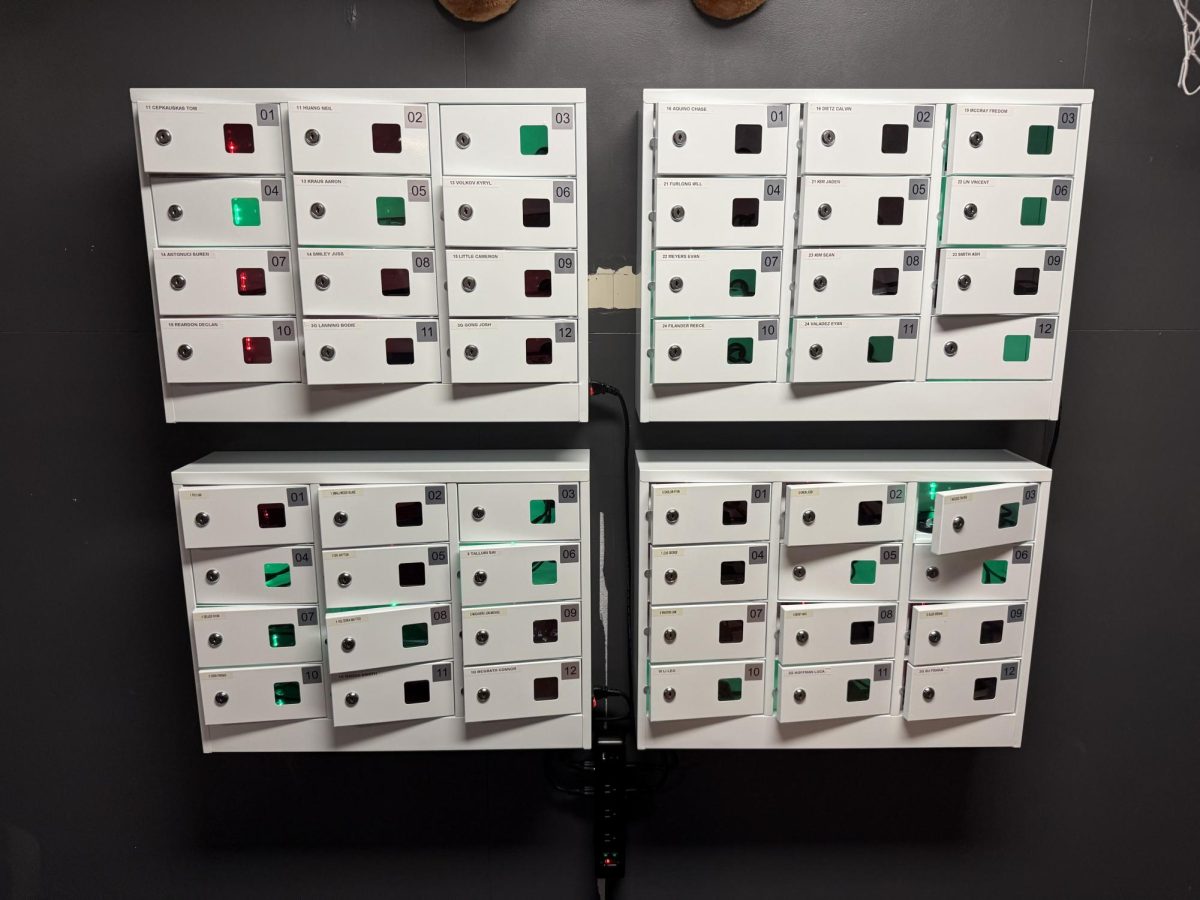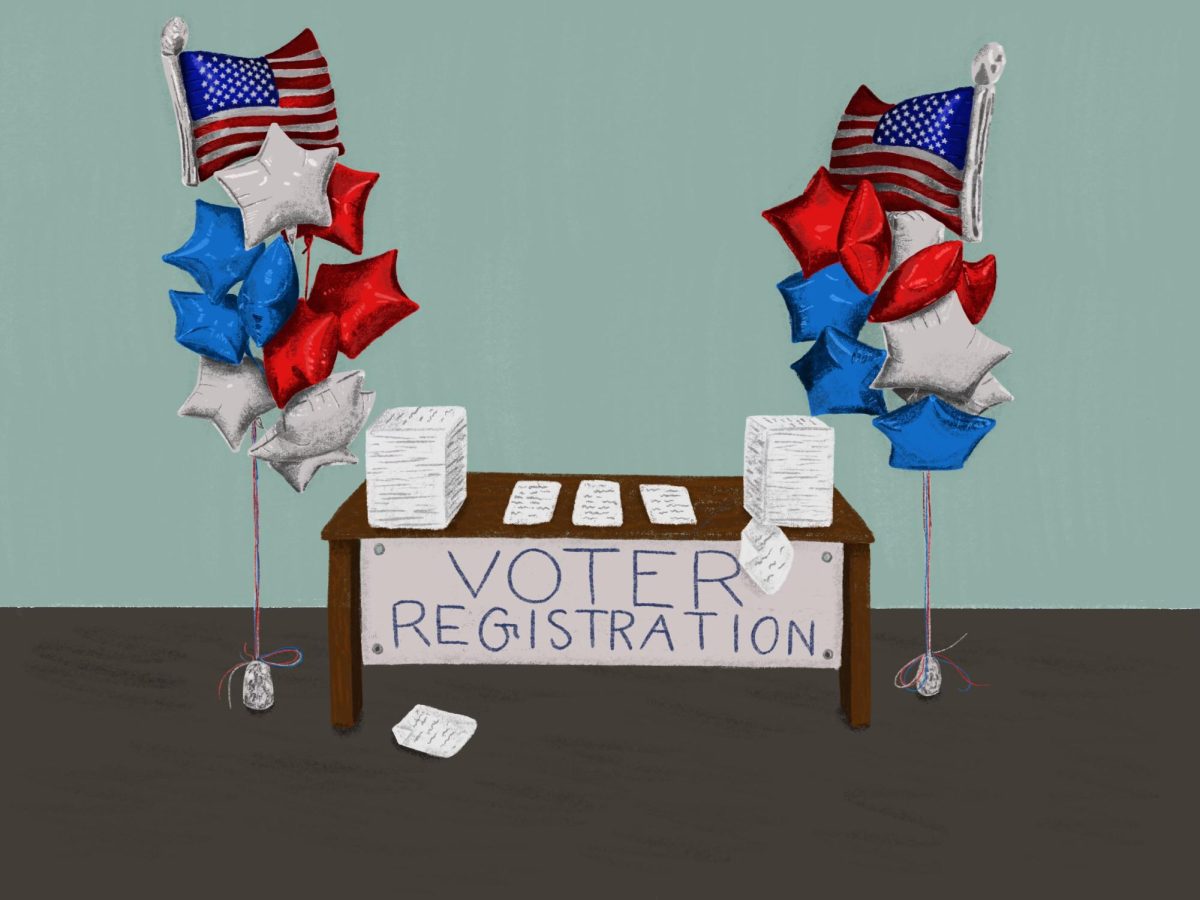Tuesday, Nov. 5, will mark the 60th presidential election in the United States. Hill’s campus is buzzing with anticipation from eligible and non-eligible voters alike.
Hill has been trying to prepare students for the upcoming election through voter registration for those old enough and education on the democratic process for all. Eric Khong, Dean of Equity and Inclusion, has been involved in the preparations for election day. Khong has experience working with groups that promote expanding voting access, such as Advancing Justice Atlanta. He has worked with Hill to prepare voter registration drives and town halls. These meetings will not only help eligible students register to vote, but also educate them about the democratic process.
“These town halls will be open to the community and cover topics like civil dialogue, watching your media diet, and other frequently asked questions about our democratic process,” Khong said.
On Sept. 17 and Sept. 19, voter registration booths were set up in the Milhiser Dining Hall and student center, respectively. Philip Kim ’25 was one of the students who helped at the booth. Kim helped eligible register at Hill to vote in the upcoming election and educated ineligible students on the importance of voting. Kim’s main goal was to educate students and encourage those able to vote.
Kim said, “Some people may not see the importance of voting, or the extent of the impact of one measly vote, but to represent that ‘voting is a civic duty’. I think that statement gets overlooked at times, but I wanted to help educate others on the idea that every vote counts and reflects your voice in the U.S. democracy.”
Hill will assist eligible voters in getting to the polls and help them register to vote. Specific details are still being worked out, but Khong said, “We hope to host a series of ‘group walks’ to the Rickett Center with a few faculty who can facilitate voting.”
Though a large portion of students cannot vote this year, non-eligible voters have felt the impact made on campus as we approach election day.
Emma Murray ’27, says, “Hill has made significant strides towards helping students get registered to vote.”
Even though she is ineligible to vote in the upcoming election, Murray said she was “excited to vote in whatever election I can because I want to be able to influence the direction the country I live in takes.”
When asked how Hill has handled the upcoming election, Jill Patel ’27 said there was room for improvement regarding education. Her primary concern is a lack of education about this year’s candidates.
Patel said that she would have liked “a meeting or an email that explains it” and that “there should also be a day in history or some similar class that talks about the election.” She also said that her lack of understanding about politics and the democratic system is why she is not looking forward to voting in the future. Patel says she would still vote when given the opportunity, but “I don’t know what to look for in a candidate.”
The Hill News conducted a survey of 150 students from Oct. 9 to Oct. 16, collecting Hill students opinion of the presidential and Pennsylvania elections. It asked three main questions: which party do you most strongly identify with; if you were voting, who would you support in this year’s presidential election; and if you were voting, who would you support in the Pennsylvania senator race?
The polls described a deeply divided student body. The Democratic Party led with 40.9%, followed by 30.4% of the students’ selection of other or neither candidate, and Republican Party accounted for 29.1% of the support from the student body.
The divide widened when students were asked to pick their preferred candidate. Kamala Harris dominated student polls with 46.7%, followed by 26.7% for Donald Trump. Meanwhile, nearly a quarter of students — 24% — selected undecided, and finally a 2.7% student choice for other candidates.
The student polls of the Pennsylvania senator race reflected, perhaps, the largest division among students. The largest selection was for neither candidate, which garnered 49.3% of the student vote. Democrat Bob Casey received the second-largest share with 30%, and Republican Dave McCormick has the smallest selection percentage.
Though Democrats triumphed in student polls, many students still believed that the Democratic and Republican parties have become too divided and do not reflect the political beliefs of the young.
“I feel like both parties are so polarized and half of the parties’ identities is being opposite of the other party,” Anaika Bandi ’27 said.
Bandi also explained the choice of neither Bob Casey nor Dave McCormick for the Pennsylvania senator election, stating that though many young voters are familiar with the presidential election, that knowledge does not comprehensively extend to down-ballot elections.
“I am not educated enough to make a decision,” Bandi said.
Many students expressed beliefs that the Democratic and Republican parties have become too divided and do not reflect the political beliefs of the young.
“I feel like both parties are so polarized and half of the parties’ identities is being opposite of the other party,” Bandi ’27 said.
“None of the candidates have taken any positions that I feel strongly on, at least not that I know of,” Oluwafifehanmi Akinyanmi ’25 said.
Other students found that they do not entirely support either Donald Trump or Kamala Harris.
“My reason for not liking Trump is because I genuinely think he is a hypocrite,” Lucy Lyu ’25 said. “For Kamala Harris, even though I support the Democratic Party, she has not done much as a current vice president, and I do not think she is going to lead the country to any success in the future.”
The undecided vote also reflected the large share of international students at Hill. Tonsun Kovitchindachai ’25 said that he “cannot vote in America,” so he has less knowledge about the political parties.
Despite uncertainties, the eligible student body — and the country — head to the real polls on Nov. 5 to determine the future of the country. That future, and the opportunity to vote, lies in the hands of students.
“Even if it can seem inconvenient, voting was first created to reflect the values of everyone.” Sienna Licata ’25 said.
Abigail Rice ’26 contributed to this article.























